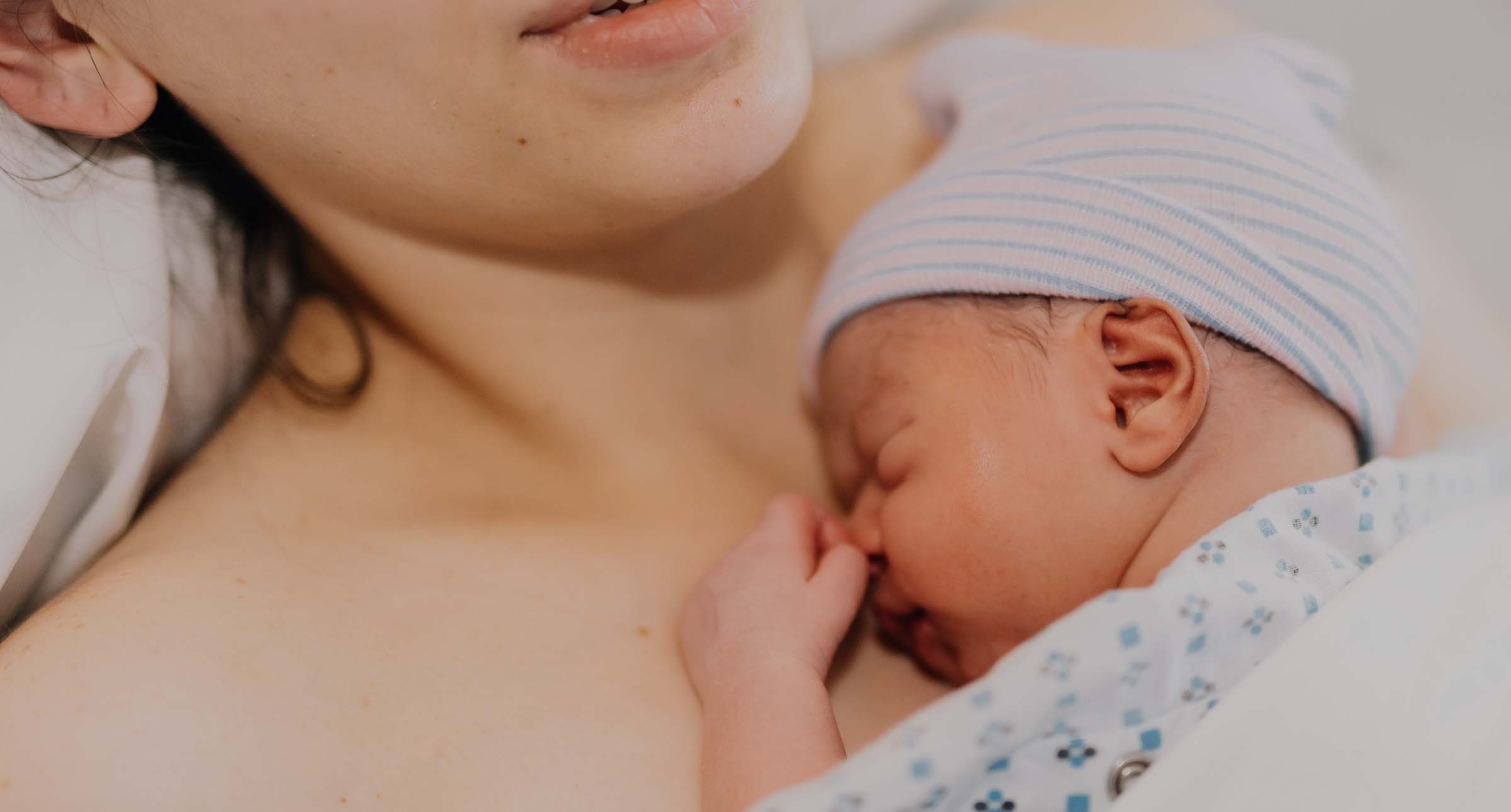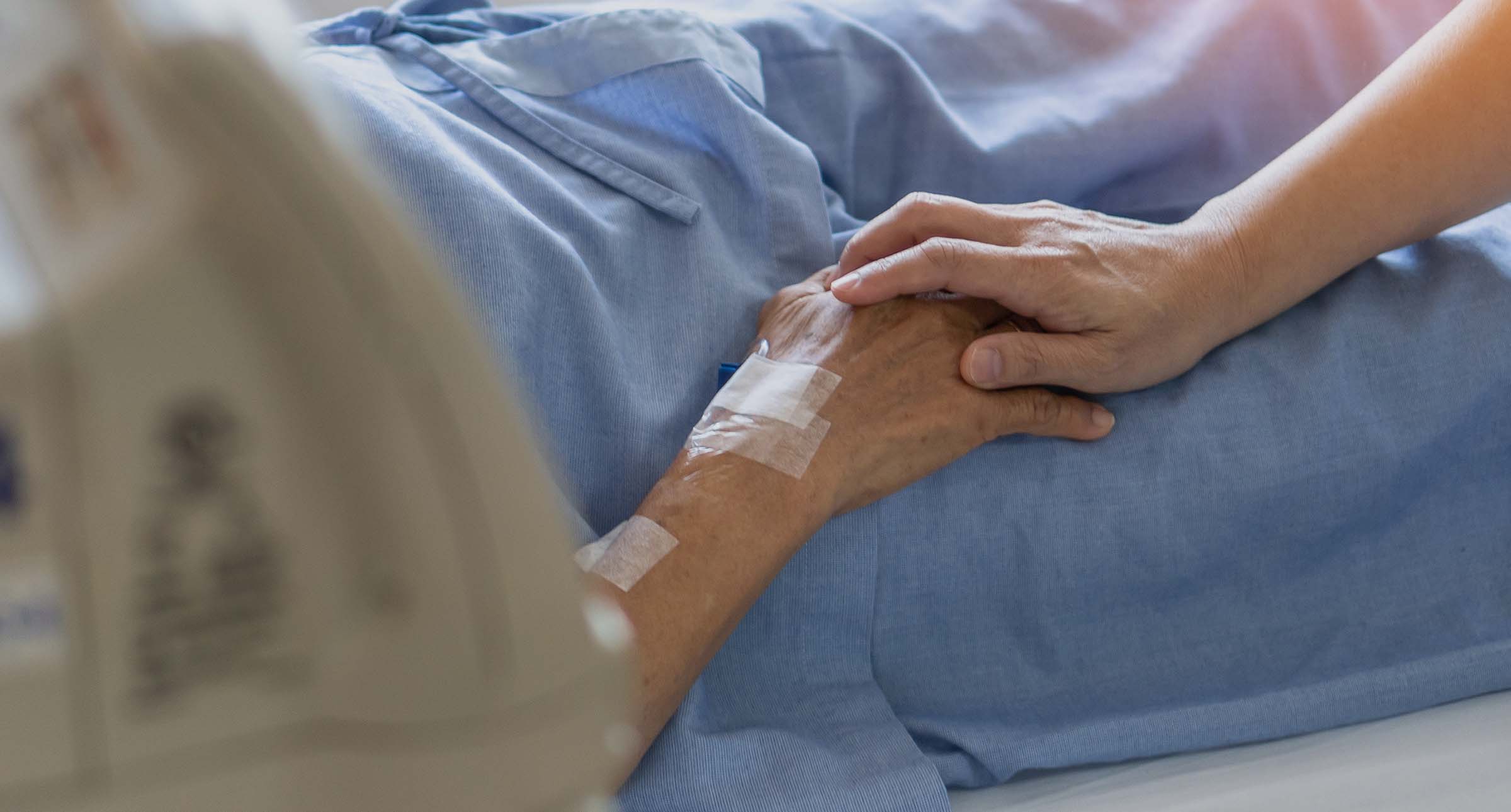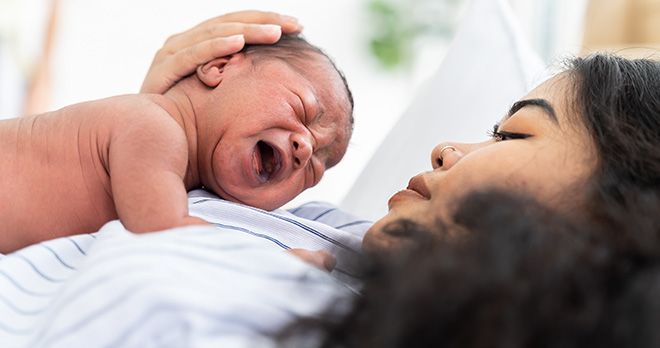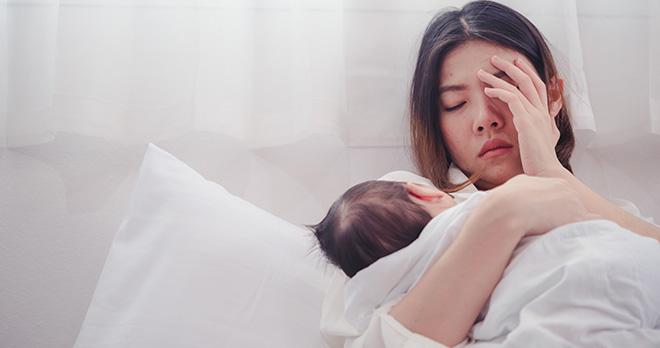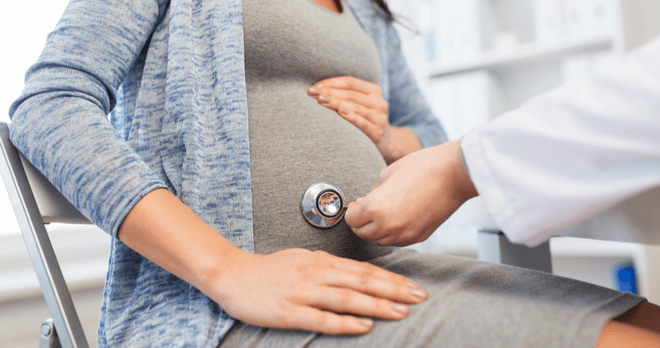What you might need to know after a maternal birth injury.
Our guide to the support available for physical & mental health, as well as making a complaint or legal claim.
If you or someone close to you have experienced a maternal injury, you know the devastating impact these life-changing injuries can have on a mother and her family. You may even be feeling isolated and struggling to find the support you need to move forward.
As solicitors specialising in birth trauma and birth injury we represent women who’ve experienced the very worst birth injuries and trauma. Therefore, our expert team has put together this guide for any mothers dealing with birth injuries and trauma to highlight the support available.
Find what you need via the links below:
Getting the right support.
If you have suffered birth trauma or birth injury, then accessing the right support is key.
It is important to have a support network around you and someone you can confide in.
Outside your family and friends circle, there is a lot of support available through charities dedicated to supporting those who have been affected by birth trauma.
As a first step, you should contact your healthcare provider, such as your GP, a health visitor or midwife. If that isn’t working for you, then there is support available from the charities and organisations outlined in this guide.
Sometimes it is difficult to know where to start with accessing treatment and even taking the first step of asking for help. The charity Make Birth Better has a really helpful video about accessing medical treatment, which can be accessed here.
If you do not feel able to talk to your healthcare professional about how you are feeling, PANDAS Foundation UK has recently partnered up with Make Birth Better and Dr Punam Krishan to put together a letter to help mothers communicate how they are feeling to healthcare professionals, to encourage better treatment from the outset. You can find the letters to download here.
Psychological support and treatment.
If your symptoms are affecting your ability to go about your day-to-day life, you might want to consider professional counselling.
There are two types of therapies that work well in treating trauma symptoms:
- Trauma-focused CBT
- Eye movement desensitisation and processing (EMDR)
Both treatments are focused on trying to remove the experience of trauma from your short-term memory into your long-term memory – the aim being that the trauma gets stored away like other long-term memories rather than something you are reliving again and again.
Both treatments are recommended by the National Institute of Health and Care Excellence (NICE) for treating PTSD and should be available within your area through the NHS. You can ask your GP or health visitor for a referral. If you are in England you can self-refer through your local Improving Access to Psychological Therapies (IAPT) service. Just google the name of your local area and IAPT to find it. As most NHS services have a waiting list, you may need to wait a number of weeks or months for treatment.
If you have experienced pregnancy or baby loss, it may be that you don’t feel trauma focused CBT or EMDR is right for you. You may want bereavement counselling or the above therapies alongside bereavement counselling. It is probably best to discuss your options with your perinatal team. It may also be helpful to contact SANDS, who can be contacted via email through [email protected], or phone 0808 1643332.
-
The Birth Trauma Association.
The Birth Trauma Association is a UK charity that is part mental health charity, part campaigning charity founded and run by women who have experienced birth trauma. They have a large team of peer supporters who offer support over e-mail and phone. The team includes a dad, Steve, who supports other dads. They also have Facebook groups that are also open to mothers and partners affected by birth trauma and they can be a good place to seek support from people who have been through birth trauma.
-
Make Birth Better.
Make Birth Better is a UK charity that supports both parents and professionals impacted by birth trauma. Their website has some useful guides and resources to assist in accessing support.
-
PANDAS Foundation UK.
PANDAS Foundation UK is a UK charity that offers a variety of support through their trained team of volunteers. They offer support via WhatsApp if you simply message 07903 508334, they offer a call back service if you use the link on their website to book, e-mail support and support groups. They can also help with self-care and how to approach your GP and other organisations who may be able to help.
-
Hearts and Minds Partnership.
Hearts and Minds Partnership is a collective of three mental health charities; Arcacia Family Support (West Midlands), Bluebell Care (South West) and Smile Group in the North West. They are not a membership organisation but a thriving community of grassroots perinatal mental health services committed to sharing, learning and creating a coherent voice.
-
The Maternal Mental Health Alliance (MMHA).
The Maternal Mental Health Alliance (MMHA) is a UK charity and network of 130 organisations, dedicated to ensuring women and families affected by perinatal mental health problems have access to high-quality, compassionate care. They have a wealth of information on their website including a map which enables you to find perinatal mental health support near you.
-
MIND.
MIND is a UK charity that offer support to individuals and their families experiencing mental health problems. They offer support through information, advice and local services.
-
Dads Matter UK.
Dads Matter UK is a free service that provides support for Dads worried about or suffering from depression, anxiety or post- traumatic stress disorder (PTSD).
-
Fatherhood_Solutions.
Fatherhood_Solutions on Instagram was set up by Scott Mair, a dad who developed PTSD after witnessing the traumatic birth of his son. Scott works with The Birth Trauma Association and hosts a monthly zoom drop-in for Dad’s on the first Wednesday of the month which can be booked in via the Birth Trauma Association website.
-
The Dad Pad.
The Dad Pad is a resource for new fathers, developed with the NHS.
Support for black mothers and women of colour.
There have been so many shocking reports highlighting the unacceptable disparities in maternity care with black, brown and mixed ethnicity women and birthing people often feeling unsafe, ignored and disbelieved.
Thankfully, there is support available via the following groups:
-
The Motherhood Group.
A UK charity that support the black maternal experience by delivering community based events, training, workshops, peer to peer support, national campaigns (Black Maternal Mental Health Week UK) and culturally sensitive programmes for black mothers. They run community based events, workshops and programmes for black mothers to feel safe enough to share any issues pertaining to motherhood, pregnancy, and wellbeing. They also provide free specialist counselling to help new mums with their mental health problems in partnership with MumsAid.
-
Black Mothers Matter Alliance.
The Black Mothers Matter Alliance provide a range of resources and services that provide accurate, relevant, and safer information and support to black and mixed black women and birthers. The resources are all available on their website. They also work with Dr Orinayo Onabanjo who specialises in perinatal mental health therapy and you can schedule some time with her via the website.
-
Five X More.
Five X More is an organisation dedicated to changing and highlighting Black maternal health outcomes in the UK. They are dedicated to making changes through parliamentary lobbying to the government and recommendations to the NHS. They also focus on empowering Black women and birthing people to make informed choices and advocate for themselves throughout their pregnancies and childbirth. The have developed the Five X More Learning Hubb App, the UK’s first culturally tailored pregnancy and parenting app for Black mothers which offers expert guidance, community support and resources specifically designed to improve Black maternal health and empower Black mothers on their pregnancy journey.
-
Tommy’s Midwife helpline for Black and Black Mixed-heritage women.
Tommy’s Midwife helpline for Black and Black Mixed-heritage women supports black and black mixed heritage birthing people in the UK with any aspect of your pregnancy journey. You can use the link on the website to book in a call.
Physical injuries following childbirth.
About six in 100 first time mothers will have a deep tear involving the anal sphincter muscle, also known as a third- or fourth-degree tear so if you have suffered this injury, you are not alone.
An OASI can cause uncontrollable urges to open your bowels, or not being able to control passing wind. You might leak faeces, experience pain and have difficulty controlling your bladder.
-
MASIC Foundation.
MASIC Foundation is the only multidisciplinary UK charity to support women who have suffered severe injuries during childbirth, otherwise known as OASI (Obstetric Anal Sphincter Injuries). The charity is run by injured women and healthcare professionals, who are committed to better detection and prevention of injury during childbirth. The MASIC website has a number of useful resources about obtaining support on the NHS, recommending pelvic physiotherapists and consultants, and also providing support to women who have suffered these injuries, in the form of face-to-face groups and also in-person support days.
-
@the_womenshealth_gp.
GP and mum, Elouise Elphinstone shares advice on speaking to a GP if you have suffered an OASI injury.
Other physical injuries suffered following childbirth include but are not limited to prolapse, urinary incontinence, pelvic floor dysfunction and pain. Sometimes these injuries occur with an OASI but many women also experience these injuries without an OASI.
On the NHS, you can access the following treatment:
Pelvic Health Physiotherapists.
Pelvic Health Physiotherapists will see a variety of conditions, including:
- stress, urge or mixed urinary incontinence;
- pelvic organ prolapse;
- faecal incontinence;
- pelvis pain related to pelvic floor dysfunctions.
Gynaecologists.
Gynaecologists will see patients with:
- prolapse;
- childbirth injury;
- urinary incontinence;
- pelvic floor dysfunction including pain and sexual dysfunction.
Colorectal.
Colorectal will see patients with:
- constipation;
- obstructive defaecation;
- anal incontinence.
Your GP will be able to refer you to above specialists on the NHS. You can also use the squeezy directory to find NHS Pelvic floor physiotherapists in your location you can select your condition and location and filter your search based between private and NHS treatment. It also has a direct enquiry option to get advice on how to get a referral.
Perineal Clinics.
Perineal Clinics are a specialist clinic for women who require follow up for perineal pelvic floor problems following childbirth. They see women who have suffered third- and fourth-degree tears, infections, perineal pain and persistent bladder or bowel symptoms to assess the healing of their injury.
Pelvic floor clinics.
Pelvic floor clinics offer a specialist pelvic floor assessment for bowel dysfunction, incontinence and constipation. You will usually be seen by a surgeon and may undergo further investigations such as scans.
Urogynaecology clinics.
Urogynaecology clinics are run by a qualified obstetrician who has a specialist interest in pelvic floor problems such as urinary and bowel weakness and vaginal/pelvic prolapse. Treatments include physiotherapy and advice on vaginal pessaries.
Psychosexual Therapy.
Psychosexual Therapy is the use of targeted counselling or psychotherapy to help address sexual problems. Psychosexual problems are emotional but they can lead to physical problems. It is therefore important to understand the relationship between physical and psychological. It is worth speaking to your GP to see if you are entitled to a referral on the NHS.
You may find it helpful to hear other mum’s experiences. Why Mums Don’t Jump is a book by Helen Ledwick who suffered a fourth degree tear and a prolapse. She also has a podcast where she talks to other mums who are struggling with pelvic floor dysfunction and to healthcare professionals. Helen talked about finding her ‘POP Club’ – a support group of women in her area who are dealing with prolapse. Through her instagram page, Helen can signpost a local support group or your POP club.
There are also larger support groups available on Facebook including FPOPS (female Pelvic Prolapse Support UK), APOPS (Association of Pelvic Organ Prolapse Support and Pelvic organ prolapse, Urology and gynaecology support groups that are private groups you can join to share information and obtain support from those with similar injuries.
www.thepelvicfloorsociety.co.uk provide general information for patients and can assist with finding an accredited pelvic floor unit.
pelvicpain.org.uk is a patient led organisation and charity who provide support, information and advocacy for those with pelvic pain, their families and carers.
Colostomy UK is a charity that supports and empowers people living with a stoma. They run projects to empower people living with a stoma to return to sport, hobbies and other interests.
Support following pregnancy loss and baby loss.
The loss of a pregnancy or baby can be an extremely distressing and difficult time.
-
Sands.
Sands offers support for all types of pregnancy and baby loss, to anyone affected by it, whether you’re a parent, a sibling, a grandparent, a healthcare professional or a friend. The charity also offers specific support for men and tailored support for Black and South Asian families. They offer support through a free National Helpline by calling 0808 164 3332, or by emailing [email protected], and their Support Chat Service is also accessible through their website.
-
Tommys.
Tommys is a charity also focussed on supporting those who have experienced pregnancy or baby loss. They offer support groups to help women connect with others who have been through loss themselves. They also provide a direct helpline for advice and support provided by specialist midwives by calling 0800 0147 700 or by emailing [email protected]. They have a pregnancy loss community on their website where they have put together a list of blogs, online communities, and social media accounts from people who have suffered pregnancy loss or preterm birth.
Find out more on their website >
Tommy’s offer a special line for Black and mixed Black women and birthing people, in partnership with Five X More. You can use the online form to complete your details and request a call at a time that suits you.
-
The Ectopic Pregnancy Trust.
Ectopic Pregnancy happens in one in every 80 pregnancies and a delay in diagnosing and treating it can lead to the rupture and loss of a fallopian tube. The effects of a significantly delayed diagnosis can be life-threatening and remains the most frequent cause of maternal death in early pregnancy, so it is vital that it is recognised and treated promptly.
The Ectopic Pregnancy Trust (Ectopic.org.uk) offers support to those who have experienced an ectopic pregnancy through telephone support on 020 7733 2653, via email at [email protected], through online discussion forums at https://ectopic.org.uk/discussion-forums, through treatment leaflets listed on their website and through live zoom virtual support groups.
Employment support following baby loss and pregnancy loss.
You have specific employment rights if you have suffered the loss of a pregnancy or baby.
Charities such as SANDS and TOMMYS mentioned above are campaigning for change to ensure equality in the workplace amongst those suffering pregnancy and baby loss. Currently, employment rights for miscarriage and stillbirths before and after 24 weeks are vastly different.
Current legislation for stillbirths and miscarriage before 24 weeks:
- no maternity leave, paternity or parental leave rights;
- employers MAY provide compassionate leave but they are not obliged to do so.
Current legislation for stillbirths and miscarriages after 24 weeks:
- entitled to full maternity rights;
- entitled to some additional health and safety rights when returning to work within six months;
- father may be entitled to Paternity leave (to be taken within 56 days of the birth);
- both parents entitled to two weeks parental bereavement leave;
- both parents MAY be entitled to parental bereavement pay.
There are things that you can request from your employer if you are struggling returning to work following the loss of a baby or pregnancy. Speak to your manager, ask for help, and request reasonable adjustments in your employment if you need them to help you with your grief and in returning to work. Employers can implement changes expected in the law before they are brought in if they so wish.
The Miscarriage Association’s Pregnancy Loss Pledge encourages UK employers to sign up to support employees going through the traumatic experience of pregnancy loss. SANDS also offer Bereavement in the Workplace training for any employer to help them help their employees.
If you have suffered the loss of your baby before 24 weeks of pregnancy you are entitled to download and complete a Baby Loss Certificate. The voluntary scheme is designed to formally recognise the devastating loss of a baby during pregnancy. It delivers on priorities set out in the Women’s Health Strategy for England and on recommendations from the Pregnancy Loss Review.
Employment support following birth trauma.
If you have suffered a birth injury or trauma, or your mental health is suffering, you may feel quite anxious about returning to work, you may feel too unwell to do so or maybe worried about how you will manage your previous role with your injury/health condition.
Where a physical or mental health condition has, or is likely to have, a long term adverse impact on you, employers are legally required to make reasonable adjustments to support you.
You may find it difficult to talk to your employer about the injury or health condition you have suffered and your worries about returning to work. While there is no legal obligation on you to tell your employer about your injury or health condition, it is advisable to have a conversation with your employer or a member of your HR team so that they can provide support and make the necessary adjustments to assist you. This may involve a referral to Occupational Health.
Under the Equality Act 2010. your employer is not allowed to dismiss you or treat you less favourably because of your injury/health condition. Your employer is also not allowed to treat you unfavourably because or something arising in consequence of your injury/health condition (such as your attendance at work or performance).
If your employer is not making reasonable adjustments or is treating you less favourably, you can try and resolve matters informally at work by speaking to your manager or HR. if this doesn’t work you are entitled to raise a formal complaint (a grievance) or issue a legal claim in the Employment Tribunal.
There are strict three month time limits to issue claims in the Employment Tribunal and you should seek advice from ACAS, a specialist charity such as Maternity Action, or from a specialist employment law solicitor.
Pregnancy after birth trauma.
Facing a subsequent pregnancy after a traumatic birth can feel overwhelming and frightening.
Mothers often feel worried that the same thing will happen again or that they have not recovered enough physically to cope with another pregnancy or giving birth.
Preparing for a subsequent birth.
It is important that you feel supported by your healthcare team and sharing your previous experience early in your pregnancy will help those around you give you the support you need. If you have suffered a physical injury, they will be able to discuss the safest way to deliver your baby with you and support you in preparing for the birth.
Make Birth Better have some very helpful advice and resources about pregnancy after trauma. To help you prepare for the birth, you can download their Trauma Informed Guide here >
It maybe helpful to write a specific birth plan that also informs your care providers that you went through a difficult experience, which helps them to give you the support you need. Make Birth Better also have a post from doula and Birthrights founder, Rebecca Schiller which can help you understand your rights in birth which is useful when writing your birth plan and preparing for your birth. Read it here >
Some hospitals use a sticker system. A sticker can be placed on the front of your notes to make sure the professionals looking after you are aware that you had a traumatic experience previously so that they can support you in the way that you want. It may be helpful to ask your consultant or midwife about this.
There is also a private Facebook group run by the Birth Trauma Association where you can get in touch with others who have experienced birth trauma.
Psychological therapy.
It maybe that you need to have psychological therapy as mentioned above in this guide so that you can process the memories of your traumatic birth. This may help reduce feeling of stress and anxiety about giving birth again. You could put in place a plan with your therapist that helps you feel more safe and secure in the next birth.
Hypnobirthing.
It maybe helpful to find a hypnobirthing class to help you think about your preferences and to learn techniques to manage the intensity of birth.
Mindfulness.
Using techniques such as mindful breathing can feel empowering and reduce stress.
Make Birth Better have a guide on their website about using the right mindfulness practices after a traumatic experience.
Pregnancy after baby loss or pregnancy loss.
Being pregnant again after stillbirth or pregnancy loss can be a very anxious time. However, you can ask for extra care, monitoring and reassurance in your next pregnancy.
Tommy’s provide a lot of useful information and resources to parents experiencing pregnancy after baby loss. They have a Pregnancy After Loss support group on Facebook where parents can talk to other people who have been through similar experiences. Visit the group here >
If your pregnancy is following stillbirth, you should be put into a ‘high risk’ group which usually means you will get extra care and scans to carefully monitor your baby’s growth and development. If you feel that you want to be cared for at a different hospital, or with a different medical team, you can talk to your GP about how to get a referral.
Tommy’s run a specialist clinic for families who are pregnant again after a stillbirth. The first Rainbow Clinic is based at St Mary’s Hospital in Manchester where families can access specialist care from anywhere in the UK.
Knowing your rights.
Knowing your rights and the law in pregnancy is important. You may have questions such as; Am I entitled to a caesarean section? Can I choose my midwife or doctor? Birthrights have factsheets for families setting out your legal rights in relation to these and a number of other questions you may have.
Investigating the circumstances of your birth.
For some who have experienced a traumatic birth, processing what has happened and understanding what happened is often the first step to take.
Below are some steps open to you to assist with understanding what happened:
Debrief service.
Some hospitals offer a birth debriefing service. This is when you can talk to a doctor or midwife about your labour and birth, go through your maternity notes and ask any questions you need, to understand what happened.
Your midwife can refer you for this service when you are still on the post-natal ward, but you can also access this service after you have left. Contact your maternity unit or ask your health visitor or midwife what’s available locally. You do not need to worry if you do not feel ready to go over your birth experience for months, or even years. You can access this service when you are ready. You can use the service alone, or your partner can go with you. However, partners cannot access the debriefing service alone, because it involves going through the confidential medical records of the person who gave birth.
Accessing your health records.
Many women who have had a traumatic birth want to see their medical records, either to find out more detail about what happened during labour or birth, or because they are considering a complaint or legal action.
You have the right to your records under the Data Protection Act 2018, which implements the General Data Protection Regulations (GDPR) and under Article 8 of the European Convention of Human Rights. You can ask your GP, midwife, doctor or health visitor to obtain your records so that you can see them. You do not need a form to do this, but can simply ask them at any time. You will need to go in person to the hospital or GP surgery to see your records.
You can also make a formal request to have a copy of your records sent to you. This is called a Subject Access Request, and you make it in writing. You have this right under the Data Protection Act 2018. You usually send your Subject Access Request to the NHS Trust’s medical records manager for maternity records.
You can find the postal or email address to send your request to on the website of your local NHS Trust or Board. Citizens Advice have standard letters you can use to seek your records.
You should not normally have to pay a fee to see copies of your records. You can be charged a fee if you are asking for a lot of information, the information will take a lot of time to process or you want extra copies of your records. This is unlikely to apply to maternity records.
You also have a right to see your child’s medical records. The application process is the same.
Making a complaint.
If you are thinking about making a complaint, it is a good idea to make a note of your experience as soon as you can. You can also ask anyone who was with you to write down what they saw or heard, and give you a copy. Prior to making the complaint, it may assist to see a copy of your, or your baby’s, healthcare records.
-
Who to complain to:
The NHS Trust responsible for your care (the Patient Advice and Liaison Service (PALS) team within the Trust).
-
What to include within your complaint:
- As much detail as possible about what happened
- Include dates and times
- Give the names of the people involved in your care if you can
- At the start of the letter, be clear about what you want to happen as a result of your complaint. For example, do you want an apology, a change in policy/procedure, staff to undertake training etc
Our website gives some hints and tips about how to write a complaint letter, with an example complaint letter that may be helpful. Read the guide here >
-
Where to send your complaint:
- the Patient Advice and Liaison Service;
- the Complaints Team; or
- the Chief Executive of the NHS Trust.
You can also send a copy of the complaint to the head of midwifery, the director of women’s services, the director of nursing and/or the consultant responsible for your care.
What happens next?
The NHS Trust must keep you informed about the progress of your investigations (NHS statutory complaints procedure, NHS complaints Policy and Patient Guidance – your local Patient Advice and Liaison Service (PALS) should be able to give you a copy of this document if you request it).
Here’s what you need to know:
- your complaint should be acknowledged within three working days;
- a timeline for a response should be provided;
- it must be investigated speedily and efficiently;
- you should receive a written response within six months of the date of your Complaint (If they can’t do this they must tell you why);
- the response should include how the Trust investigated your complaint and their conclusions reached;
- you may be invited to a meeting at the hospital, surgery or clinic to discuss your complaint.
You should be aware that there is a time limit for making a complaint. This is 12 months from the date of the treatment you are complaining about. However, the deadline can be extended if you have good reasons for not complaining within the time limit, and it is still possible for the Trust to investigate the complaint fairly and effectively.
Can I take legal action?
Yes, you can take legal action. You can take legal action at the same time as making a complaint or pursuing the debrief service, you do not need to await the outcome of one of the above before exploring legal action.
You should be aware that there are time limits for taking legal action. A claim by or on behalf of the person who gave birth must be issued within three years of the birth. The Birth Trauma Inquiry Report recommended that the limitation period for mothers who have suffered a birth injury should be extended from three years to five years due to many mothers not feeling able to contemplate legal action due to the trauma they have experienced. At RWK Goodman, we support this proposed change to the law and are happy to consider your case even if it falls outside of the usual three year period to see if we can assist. A child will usually be able to make a legal claim until their 21st birthday. If a child, or adult, does not have the mental capacity to bring a claim, then there is no time limit for making a claim.
Find out more about time limits in our video:
There are a number of organisations that can help you with identifying a solicitor to deal with your case. The Law Society offer assistance with finding a suitably qualified medical negligence solicitor and AVMA, a charity that promotes better patient safety and justice for people who have suffered avoidable harm can also assist. Both organisations have details of panel solicitors who have been accredited by them as having the appropriate experience in conducting birth injury work.
Essentially, it is important to identify a solicitor who specialises in birth injury and maternal injury work, you should not be afraid to ask questions about their experience and expertise in dealing with cases like yours.
We have a dedicated maternal injuries team, lead by women who have experienced birth themselves, who can provide advice on a legal claim and support you through making one.
What level of compensation might I receive for a maternal injury case?
Each case is unique and the level of compensation you will receive is determined based on your individual circumstances. However, the compensation you are entitled to is split into two categories;
- General Damages – this represents the compensation for your pain, suffering and loss of amenity. It can include compensation for your physical and psychological injury and how that injury impacts upon your ability to go about your day to day life. The court has produced guidelines that set out different levels of compensation that should be awarded for different types of injury.
- Special Damages – this refers to the financial losses you have incurred as a result of your injury. The sort of financial losses we typically see are; treatment and therapy costs; travel expenses; loss of earnings and any care and assistance you have requires from friends or family. There are usually past financial losses already incurred and future losses for treatment and expenses you will incur throughout your lifetime.
Watch Hannah Blackwell from our maternal injury team explain more about compensation for medical negligence in our video below:
Here are a couple of clients, sharing their stories, who we have helped:
LK (Case Settlement Value £448,000 RPI Adjusted to January 2025);
“I required a stoma after the Hospital caring for me failed to diagnose and properly repair a vaginal tear following the birth of my first baby. The settlement of my claim enabled me to access the private treatment, physical and mental, I needed to get my life back again, to be the mum I wanted to be and the person that I was before the birth of my son. I was hesitant at first about bringing a claim but Rebecca and Hannah supported me and I have never looked back”.
LXB (Case Settlement Value £726,308.00 RPI Adjusted to January 2025);
“I suffered a severe perineal tear, prolapse, cystocele and rectocele following the birth of my first baby which causes me to experience incontinence of faeces and urine. I also experience a lot of pain. I have been diagnosed with Post-Traumatic Stress Disorder as a result of the trauma I experienced. I was unable to return to my previous employment due to my injury and sometimes I struggle to even leave the house because of my symptoms. The compensation I have received has enabled me to access treatment on a private basis that I could not get on the NHS. It has removed the financial pressure I was experiencing because I could not return to my previous employment. The hospital initially denied negligence in my case which I found really upsetting because it was as though no-one was listening to me or believed what I was saying. However, Hannah was incredibly supportive throughout the process and reassured me that we should press on to get the settlement that I was entitled to.”



